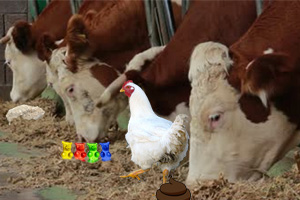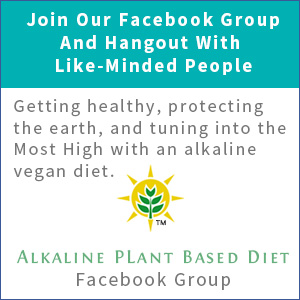Grass Fed Beef VS 6 Crap Foods Fed Factory Farmed Beef

The idea behind grass fed beef is that it is healthier to eat than factory farmed beef.
The ideal grass fed beef environment would allow cattle to be able to move around and graze.
The issue with grass fed beef is that is is not the most cost effective beef to produce. Large-scale producers are interested in raising the most profitable product for the lowest cost, which does not mean doing what is best for the cattle.
It also doesn’t mean doing what is best for the people eating the beef.
Grass Fed Beef
Grass fed cattle are allowed to graze on grass, which is their natural diet. Cattle’s digestive systems are constructed to gain the most out of the nutrients grass has to offer. The combination of nutrients cattle get from grazing on grass works in a excellent ways to support their healthy living.
The stressful environment of being confined using factory farming methods produces disease in the cattle which creates the need to use large amounts of antibiotics to control disease.
I don’t eat meat but for those who do, eating meat from healthy cattle introduces less harmful substances into their bodies.
Factory Farmed Beef
The name of the game is producing beef at the lowest cost. Taking this route doesn’t produce healthy beef, it just produces the most beef at the cheapest price.
Instead of using grass to produce grass fed beef, food stock like corn, soy, and hay first took its place because their use was more economical the grass feeding cattle.
When those foods stocks dwindled other sources of food were needed. Cheaper food staples have used to feed cows instead of the healthier grass.
As a result of either a shortage of corn, soy, or hay or trying find the most economical way to feed cattle, 6 crap foods have been used to feed factory farmed cattle.
1) Antibiotics
I know antibiotics are not usually thought of as food, but the amount of antibiotics factory farmed cattle is fed can qualify as food. The confined spaces factory farmed cattle are forced to endure plus the crap food they are forced to eat creates a stressful and disease infested environment. This environment creates the need to feed the cows large amounts of antibiotics to control the spread of disease. See 5 modern diseases grown by factory farming.
2) Gummy Bears And Candy the Diet Of Champions
Have you never seen cattle chewing down on gummy bears? The factory farmers will tell you that the cattle love it. Unfortunately I am serious! To keep costs down gummy bears, cookies, chocolate, fruit loops, and a whole list of candies are being used in place of grass and even corn, soy, and hay. These processed junk foods contain things like high-fructose corn syrup, MSG, hydrogenated oils, pesticides, herbicides, insecticides, acrylamides, artificial flavorings, artificial colorings, and artificial sweeteners like aspartame. These things are harmful to us as well as cattle.
3) Sawdust Fed Factory Farmed Beef Has To Be Better Than Grass Fed Beef?
Yep I wrote it, saw dust! Factory farmers have the nerve to promote it as healthy. Grass fed beef vs sawdust fed beef? I will take the grass fed beef, that is if I ate beef.
Sawdust is made largely of cellulose, which is a carbohydrate so some people (factory farmers) will argue it is good for cattle. The thing is it is bound together with a compound called lignin, which makes it hard to digest.
Simple solution: Strip the lignin from the cellulose by soaking it in nitric acid. Did I mention that nitric acid is a precursor in the manufacture of explosives? That has to be wonderful for the cattle’s digestion system? No worries that is what the antibiotics are for.
4) Chicken Shit Fed Beef Beats Grass Fed Beef?
The term chicken litter is often used instead of chicken shit to lighten the load of the term. It is chicken feces that are being fed to cattle. The large amount of chicken feces produced by chicken is expensive to properly dispose of. Chicken feces contain protein though. Light bulb! Feed the chicken feces to cattle as a way of supplying the cattle with protein while getting rid of the chicken feces. Priceless!
Care has to be taken to remove metal, glass, rocks, and other foreign objects that end up mixed into the chicken feces during removal and transport of the chicken feces for processing.
Pathogens like as Salmonella typhimurium, Escherichia coli, or Clostridium botulinum, may be present in chicken feces and care needs to be taken to kill the pathogens.
Read more about the nutritional value of chicken feces.
5) Who Doesn’t Like Limestone? Grass Fed Beef Doesn’t
Cattle need to get their calcium from somewhere, why not limestone? Really? To make money people will find a way to justify anything and everything.
6) Crab, Shrimp, And Fish Guts Beats Out Grass Fed Beef
Like chicken feces, crab, shrimp, and fish guts contain protein. Since the guts would go to waste and be discarded what better way to make a profit and be eco-friendly? Though cows do eat this food that is given to them, guts are not part of their natural diet.
Just like humans cattle can eat a wide variety of food, but it doesn’t mean that food is good for them. Imagine what is happening to their digestive systems. It might be something just like how we destroy our digestive systems and develop diseases like irritable bowel syndrome.
Oh my bad, that is what the antibiotics are for.







